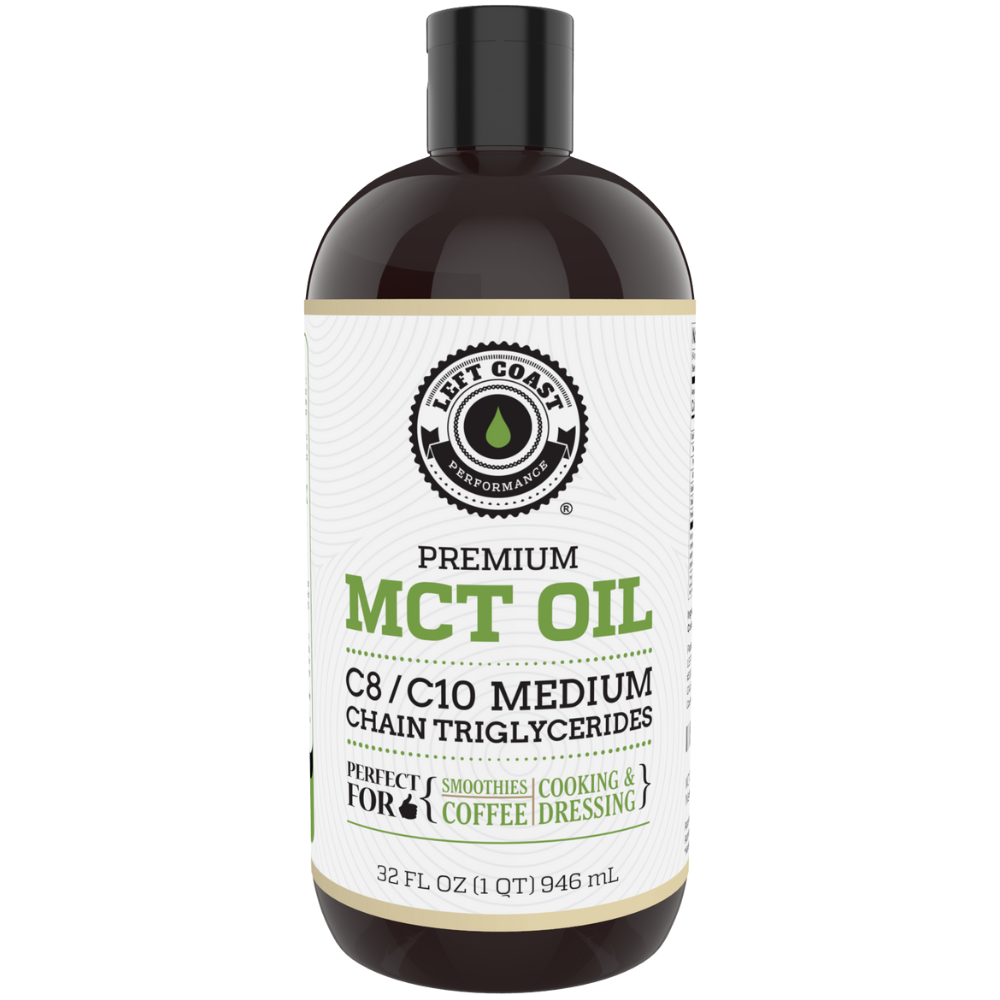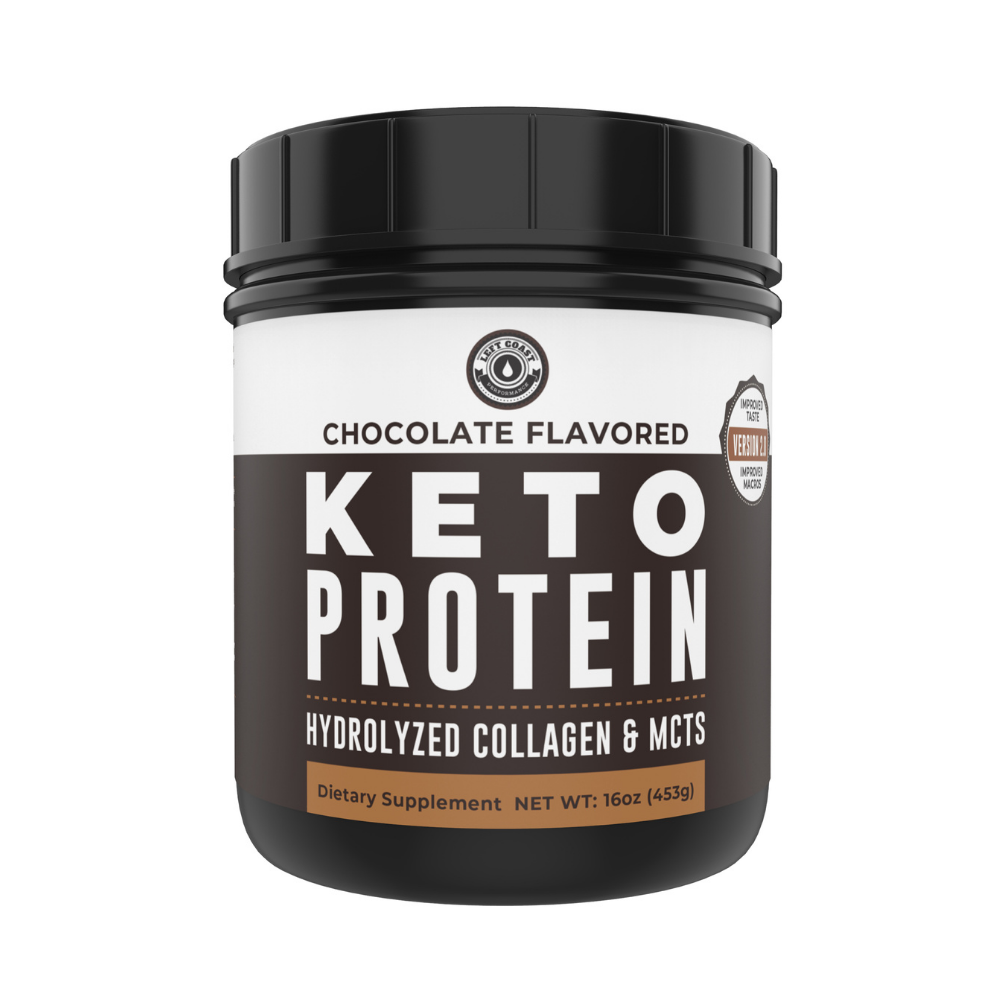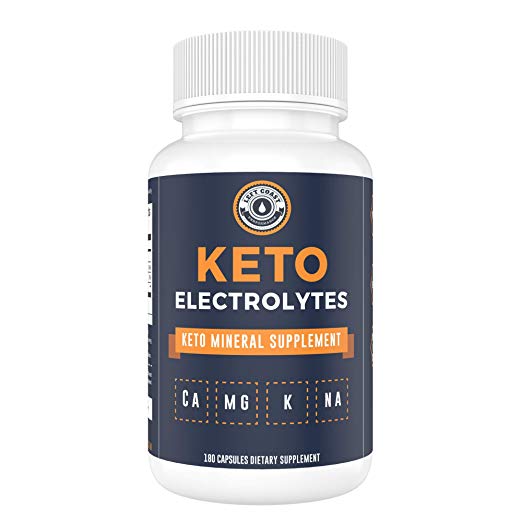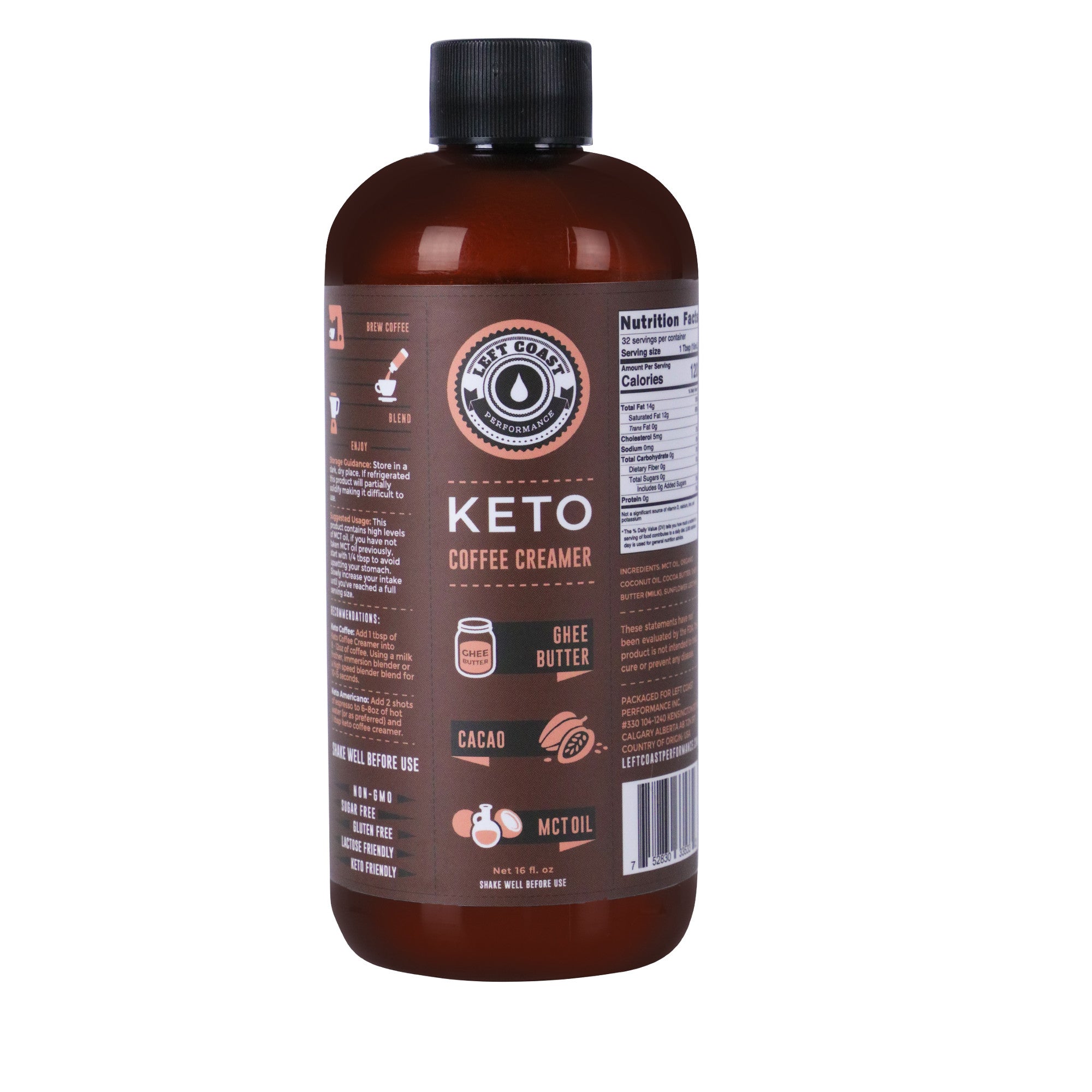Creatine on Keto
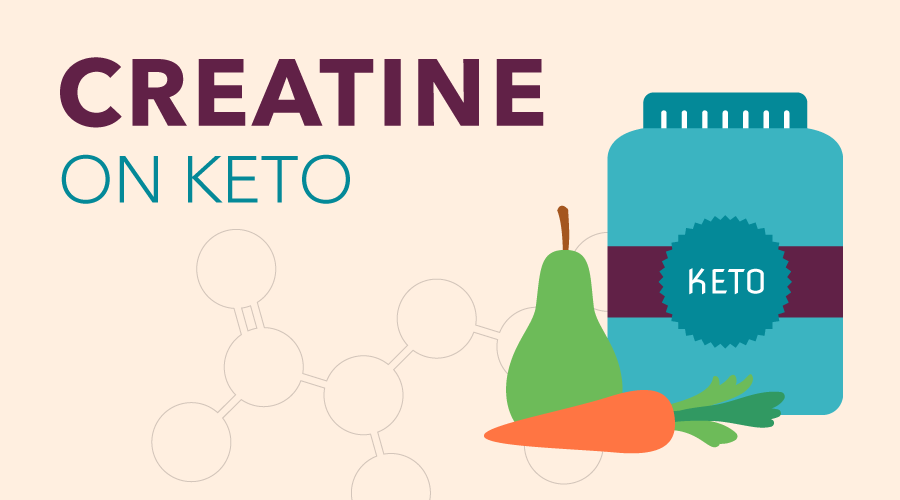
on May 16, 2019
Walk into any gym, fitness center, or health and wellness store and you’re sure to see giant jugs of creatine stacked in beautiful displays. Lauded by every gym rat and workout bro on the block, it may be difficult to separate the research-based facts from the hype when it comes to this fitness supplement.
So what does this miracle workout powder do? Is it effective and can people on a keto lifestyle use it, too?
In this short introduction to creatine, we’ll discuss the things you should know before adding this supplement to your daily routine.
What is Creatine?
Creatine is an amino acid found naturally in the muscles and brain. It can be produced naturally the body and synthetically but is most often consumed in its natural form and is derived from red meats and seafood.
The human body produces its own creatine in the liver, kidneys, and pancreas, though some athletes and vegetarians choose to augment these levels with oral creatine supplements, usually in the form of a powder.
While most supplements are under-studied and unregulated, creatine is one of the most researched supplements out there. According to the Mayo Clinic, creatine is generally safe to take, but research has produced mixed results on the efficacy of the supplement to boost athletic ability and exercise function.
The creatine market is a big one. It’s filled with inflated claims and flashy advertising that feed its $350 million market share that continues to grow year after year. As you may have already known, there is a multitude of creatine products available in this booming market.
When it comes to the specific type of creatine to use, most researchers suggest a 100% creatine monohydrate powder. This formulation of creatine is the most researched and does not contain any fillers or extra electrolytes — which means it’s less expensive, too.
Studies show that these fillers do not positively impact the effectiveness of creatine and may add additional carbs into the mix, so it’s best to look for a straight up unflavored version.
Mixing up your own creatine is simple. Take 2-10 grams of creatine powder and mix with the liquid of your choice. The powder should mix in completely and should not leave residue or particulate at the bottom of your mixing vessel. For those on a keto diet, mixing with water is the easiest and lowest carbohydrate option, though some may prefer to mix it into a low-carb pre-workout shake.
How Does Creatine Work?
On a technical level, creatine works by increasing the body’s adenosine triphosphate (ATP) levels once it’s transformed into phosphocreatine.
Once your body builds up more phosphocreatine, it can store more ATP, which is the energy currency of the body. ATP is a high-energy molecule that is responsible for powering cellular functions across the entire body. By increasing this vital energy molecule, your body can use it’s extra ATP to build muscle.
In addition to molecular muscle-building, creatine can also help your cells store more water, which is especially important for people on keto. The ketogenic diet makes cells lose water, which can cause dehydration if adequate water is not consumed. Creatine may help your body retain the water it needs, plus it contains no calories and won’t throw you out of ketosis.
Typically, creatine is dosed using a loading period and a maintenance period. During the loading period, users consume a larger amount of creatine to quickly build up the body’s phosphocreatine stores. Dosing for the loading period typically starts at 20 grams.
Once this period is complete, a lower dose is used to maintain high levels of energy and promote muscle mass over time, typically 2-10 grams.
Advantages of Creatine
Though it may not be the magic bullet solution it’s proclaimed to be, creatine has definitive research to back some of its claimed advantages. The following are proven results of supplementing creatine:
Better Athletic Performance
Creatine sees some promising results in many athletic activities while showing no improvement in others. According to WebMD, studies saw athletes’ performance in jumping height, soccer and rowing improve after consistent creatine use.
Reduced Muscle Loss due to Aging
In a study that compared older adults performing resistance training, those who were using creatine had improved muscle strength compared to the control group.
Increased Muscle Strength
Creatine is shown to improve upper body strength and lower body strength across subject groups. From high-performance athletes to the average joe at the gym, creatine can help anyone build more muscle.
Researchers continue to study creatine to this day for a variety of different conditions. More research is needed to determine the efficacy of the following creatine treatments:
- Skin aging
- Heart disease
- Lung disease
- Depression
- Diabetes
- Fibromyalgia
- Multiple sclerosis
- Parkinson's disease
Is It Safe to Take Creatine While Doing Keto?
In general, creatine is given the green light by the Mayo Clinic, signifying that it is likely to be safe when used as directed for a period of time up to five years. Most experts agree that a daily dose of creatine, about 2-10 grams, is perfectly safe for the general public to consume, including those on a ketogenic diet.
As mentioned above, creatine may also help those on keto with water retention, as creatine helps your body store more water in muscle cells.
The largest benefit to the keto community may be the energy created by creatine. One of the most notorious side effects of the keto diet is the feeling of fatigue.
Creatine supplements may be able to help you combat this tired feeling, especially in critical times like when you’re working out. The extra ATP can help your body perform at its best, without the usual help of carbohydrate-based energy like glycogen.
Keto-Friendly Creatine
As most followers of a ketogenic already know, carbs are everywhere and creatine is no different. Luckily, creatine in its pure form is calorie free, on the account that no macro breakdown is needed to process creatine into energy. This does not mean, however, that all creatine mixes are keto-friendly.
There are some things to be on the lookout when trying to introduce creatine to your keto diet. The most important thing is to make sure there aren’t any high-carb additives to your creatine of choice.
Scientific studies show that creatine is slightly more effective when taken in combination with sugar, which is bad news for keto dieters. Some creatine manufacturers mix flavors and sweeteners into creatine blends for this reason.
The best advice? Avoid the frills of flavored creatine concoctions and go for the real thing: 100% creatine monohydrate.
What Are the Potential Dangers?
As with all vitamins and supplements, caution should be taken when considering something that goes into your body. It’s important to do your research because these substances aren’t evaluated by the FDA like other products are.
Creatine is no different. It has side effects and can interact poorly with certain medications. Here’s what you need to know:
Side Effects
There is some concern about high doses of creatine and damage to the liver, heart, and kidneys.
According to the Mayo Clinic, other side effects of creatine use include:
- Nausea
- Dizziness
- Diarrhea
- Muscle Cramping
- Gastrointestinal distress
- Fever
- Heat intolerance
It is advisable to avoid creatine if you have kidney issues, a history of kidney disease, or a condition that increases the risk of kidney problems like diabetes.
Additionally, creatine may increase manic feelings in those suffering from bipolar disorder.
Interactions
Because of the link to possible kidney damage, it is advised to avoid drug interactions that can cause kidney damage. This includes two groups of substances:
NSAIDs
NSAIDs are anti-inflammatory pain-relieving drugs like Ibuprofen, Aspirin, and Naproxen. These drugs are potentially nephrotoxic, meaning they could damage the kidneys. It’s best to avoid this type of drug when using creatine.
Caffeine
Caffeine is also no-friend to creatine. Studies show mixing creatine and caffeine can actually make creatine less effective.
Final Verdict
When it comes to the ketogenic diet, creatine gets a thumbs up — if taken as directed. As one of the most well-documented supplements, you can feel confident that you’re taking something that’s safe to use and effective for building muscle.
If you’re interested in more products that can help you on your keto journey, be sure to check out all things keto at Left Coast Performace. There, you’ll find a variety of products and educational tools to help you live your best keto life.





